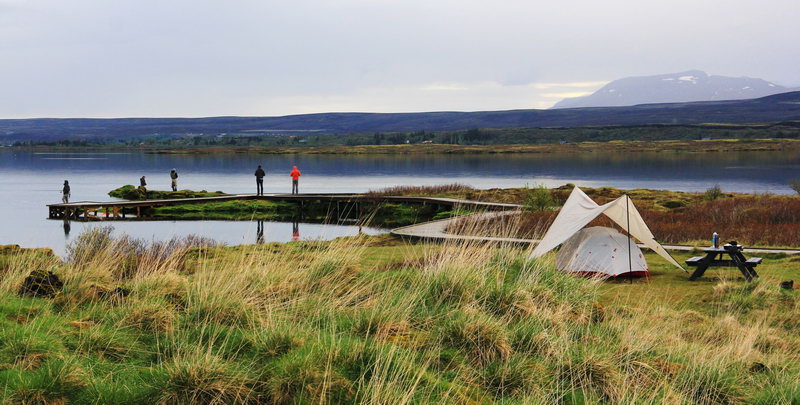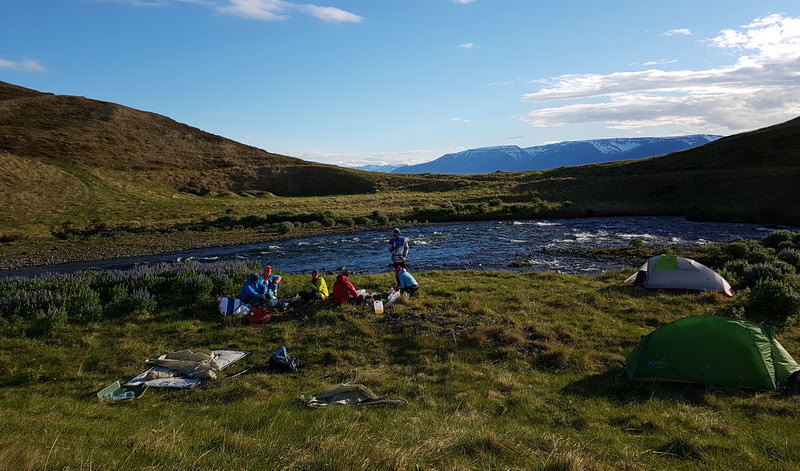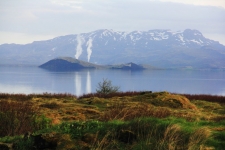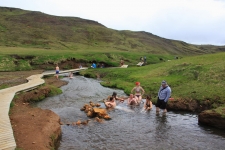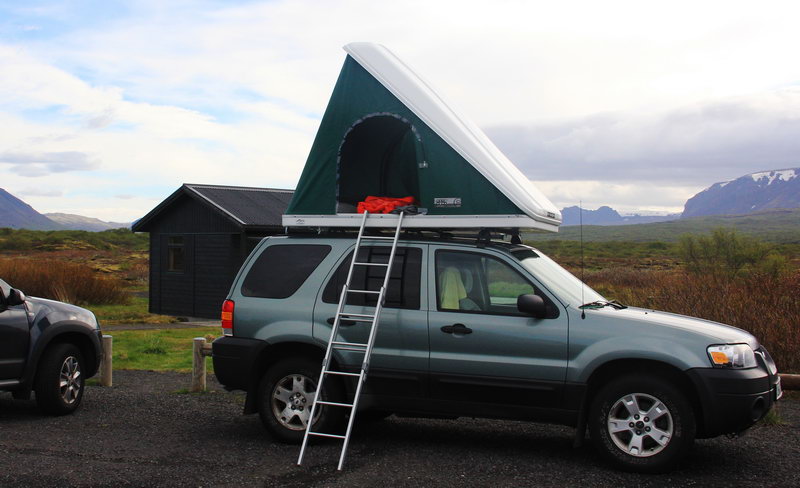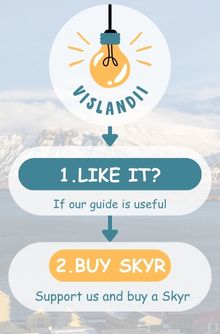If you decide to go to Iceland and want to see the nature of this beautiful island, then you can live in a hotel, in a mobile home or in a tent at a campsite. Camping sites in Iceland are located near all the attractions, or even right on the territory of the attractions.
When we say camping, we often mean just spending the night in a tent. I immediately remember hiking in the forest for the weekend, and maybe in the mountains, where a camping place still needs to be found. And it's not a fact that it will be good. In Europe, when they talk about camping, they often talk about equipped camping areas.
You can find a variety of accommodation in Iceland, but hotels in Iceland are expensive, and often they are not so close to beautiful places. A motorhome is a very good option if you have experience driving such a large car and you want more comfort. But one of the most budget-friendly accommodation options in Iceland is camping.
We will review all the details regarding camping in Iceland:
- Camping in Iceland is an inexpensive housing option
- Iceland Camping Map
- Wild camping in Iceland - is it possible to put up a tent NOT on the territory of equipped campgrounds
- The cost of camping in Iceland
- From the list of camping equipment in Iceland
- Reviews of camping sites in Iceland
Camping in Iceland is an inexpensive housing option
Housing in Iceland is expensive, and even renting motorhomes is not an inexpensive option either. The easiest and most inexpensive accommodation in Iceland are campsites.
Camping sites in Iceland are very close to natural attractions, and sometimes even on the territory of attractions - for example, camping in the Tingvellir Park.
Tingvellir National Park or Tingvedlir, Thingvellir, ÞIngvellir
Thingvellir National Park is a favorite stop among travelers on the Golden Ri...
Icelandic campsites are slightly different from most European continental campsites and from American campsites. First of all, because you will not have your own place under the tent, which will be indicated to you, often your car will stand at a distance from the tent.
Camping is a place for parking cars and green lawns where it is possible to put up a tent. However, these green lawns will be flat and it will not be difficult to place a tent there. At least a toilet will be located on the camping site. But often there is also a kitchen, or rather a place where you can cook and even eat under the roof, which is very convenient when the Icelandic weather deteriorates.
In some campsites, you can even find a shower, but usually you have to pay extra for it. Therefore, you should think about it and, for example, go to the thermal springs, where there will definitely be a shower before entering the pool. Or maybe just find a hot river or a spring somewhere in the mountains! The top 10 inexpensive or even free thermal springs, as well as their map, can be viewed in the article
10 Inexpensive Alternatives to the Blue Lagoon
Iceland is one of the most popular travel destinations in Europe, and there are especially many tourists in Iceland in the summer. But even in summer it is not very ho...
It is forbidden to build bonfires in Icelandic campsites, electric cooking stoves are not available in all campsites, so we advise you to think in advance how you will prepare food when spending the night in campsites. These can be sublimates, which are enough to pour boiling water, which also needs to be taken somewhere. Or maybe you want to cook properly. On such trips, we prefer a liquid fuel (gasoline) camping burner, since gasoline is almost always at hand if you drive a car.
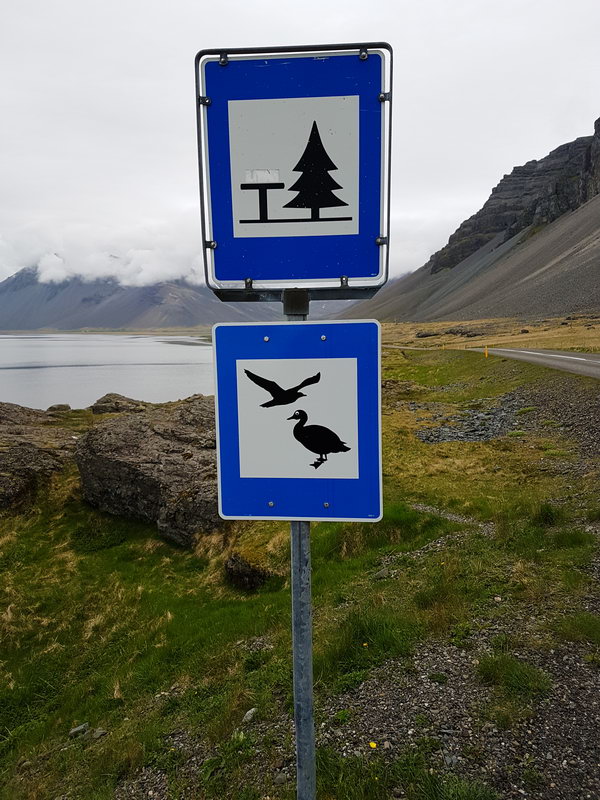
Iceland Camping Map
Camping sites in Iceland can be found everywhere, almost near every town or village, as well as near every attraction there is at least one campsite, or even not one, but several. But in some of them, the number of places for tents is not very large, and they are quickly occupied.
If you decide to purchase paper maps of Iceland, then in 90% of cases camping sites will be marked on them. But what if you are just planning a trip, but already now you want to pick up a camping site and read reviews.
For your convenience, we publish here a map that you can use even during your trips by opening it in Google maps
You can also search for camping sites on the popular European camping site - camping.info . You can also just use Google maps and search by the words camping, campground, camping place. If you need to turn off the main road to the campsite, there are almost always road signs or signs with directions.
There is also an opportunity to purchase a "subscription" for camping in Iceland. This is called a "campingcard". In 2025, the campingcard includes more than 40 campsites throughout Iceland. A map of these campsites can be found on the official website. In 2025, such a camping card costs 179 euros and allows free overnight stays in the network's campsites for two adults and 4 children under 16 years of age no more than 28 times. That is, if you are going to Iceland for a long time or are planning several trips within one year, then this may be beneficial. But keep in mind that not all campsites in Iceland accept this card.
Another option for finding camping sites in Iceland is inspiredbyiceland.com
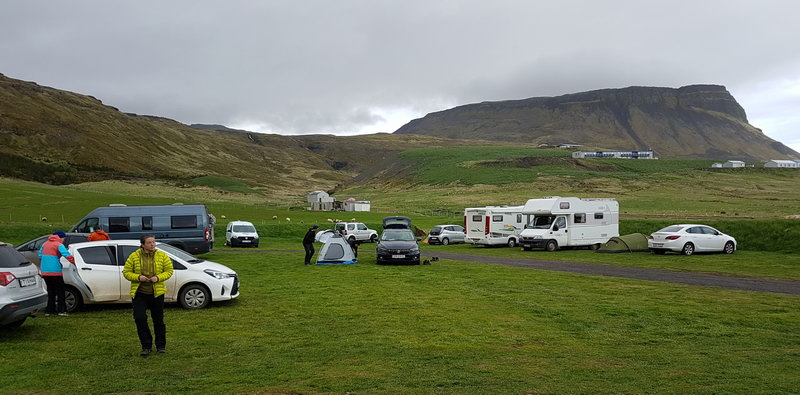
Wild camping in Iceland - is it possible to put up a tent NOT on the territory of equipped campgrounds
To put up a tent just in a beautiful place, and even not pay a single euro for it?! Is it possible in Iceland as it is possible in many Scandinavian countries. More recently, this was possible almost all over the country, but due to the increased number of tourists, Iceland has introduced some restrictions on "wild" camping.
If you are going hiking in the Highlands or another region of Iceland, where there are simply no campsites and in general this region can only be reached on foot, then you can certainly say that you can put up a tent. According to Icelandic law, it is allowed to pitch a tent only away from the main routes, and then if there is no other option... In other words, there are no clear restrictions, but there are also no clear rules to which you can refer.
The same rules state that there should not be more than three tents, tents should not be placed in places for recreation along the roads. Almost all the land in Iceland is private property, and if there are more than three tents in your group, then you must get permission from the owner of the land in order to stay overnight. However, if there are no houses in sight, then it is unclear where to look for this owner.
In our experience, even if you are in a not very remote region and there are few of you, you can put up a tent for one night, although it is better to do it out of sight of houses or other buildings. If you see a house, you can ask the owners and there is a good chance that they will not refuse you.
Here there is an article in English, with a list of places (protected areas) where you can not put up a tent - www.ust.is/einstaklingar/frettir/frett/2016/06/30/May-I-camp-anywhere -
The following is a translation of this article:
Can I stay the night wherever I want?
If you decide to set up a tent or sleep in a car outside of organized camping sites, there are several things to consider. In November 2015, changes were made to the laws on environmental protection, seriously reducing the number of places where you can stay overnight. For example, it is now allowed to spend the night in campers, mobile homes and the like (perhaps this includes any cars in which you can sleep) Outside of organized campsites, only the land owner has issued you a permit.
In general, the following camping rules apply in Iceland:
Where can I spend the night?
- Along the roads in populated areas, on uncultivated land, you can put up an ordinary tent for one night. The exception is places located in close proximity to campsites, and places where the owner has explicitly prohibited overnight stays, passage, travel, etc. (for example, there are gates at the entrance or warning signs);
- Along roads outside populated areas, you can put up an ordinary tent on private and public land;
- Away from the roads, you can put up an ordinary tent on private and public land, if there are no special rules for this zone (for example, the zone is a national park, a list of prohibited camping places can be found in the original article).
When do I need to get permission from the land owner?
- If you plan to spend the night near houses, farms and other populated areas;
- If you plan to stay more than one night;
- If you plan to put up more than three tents;
- If the land is cultivated;
- If you plan to spend the night in a camper, mobile home, etc. (this may include any cars in which you can sleep).
Are there places where I can't spend the night?
- On some lands, owners may prohibit or restrict parking/overnight stays, for example, if there is a risk of damage to nature.
- If the owner has organized his own campsite, then he has the right to send people there and charge them money for maintenance. Also, if there are organized camping sites next to the land, the owners of the land can direct people there.
Also, do not neglect the signs that camping is prohibited - most likely it is really prohibited. And even if you walk 500 meters away, they may come to you in the evening and ask you to pack your things.
The cost of camping in Iceland
If you are not sure if it is possible to spend the night in this place in Iceland, then the cheapest way to spend the night legally is to search for a camping site! The cost of camping in Iceland is not the lowest, but we have seen it higher.
The price of camping consists of several components, first of all, it is every person who stays at the campsite. Not the number of tents, but the number of people. The cost per person ranges from 1000 ISK to 2000 ISK (approximately 10-20 $). There is often no separate payment for a tent. Also, most often, you will have to pay extra for a hot shower - about 300-350 ISK per person. Although in some campsites the shower is free. All campsites have parking where you can park your car and this is included in the price of your stay at the campsite.
In some expensive campsites, the price per person may include not only a place to sleep, use of the kitchen, toilet and shower, but also a thermal pool, which may be located on the territory of the campsite itself or very close to it.
As we have already mentioned, you can use the camping card. It provides 28 free overnight stays for two adults with children, but during one season and in a certain set of campsites.
By the way, if you are staying at a campsite near the town and the shower is paid, then it would not be superfluous to learn about the city's thermal springs. The price for them will be $ 4-5, but you will have the opportunity not only to take a shower, but also to swim in thermal springs with harsh Icelandic residents.
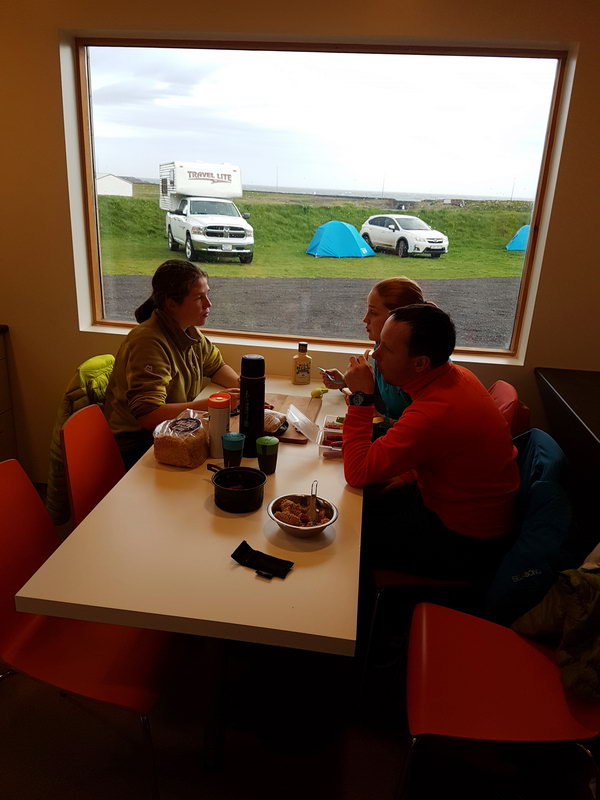
List of camping equipment in Iceland
Most likely, if you are interested in camping, then you have all the necessary equipment. Or maybe you were just looking for inexpensive accommodation in Iceland and found this article and you immediately had a question, what would I need for camping in Iceland?
And here is our most complete list of camping equipment in Iceland:
- The tent is good, waterproof, spacious enough and of course stable. After all, the tent will be your home and must reliably perform these functions
- A sleeping bag or just a sleeping bag - preferably at a comfort temperature from 0 to +10 degrees, because even in summer it is quite cool in Iceland
- Karimat, bedding is a layer between the tent and your sleeping bag, which will protect you from the cold coming from the ground and provide a softer overnight stay. You can use an inflatable mat, but then it's worth checking the place for sharp pebbles or thorns.
- A burner for cooking - even if you want to eat dry sandwiches, hot tea on cold Icelandic evenings will not hurt. Maybe it's gas, but then you'll have to buy gas cylinders, or gasoline.
- Cooking utensils
- Water containers can be just plastic bottles, water is not always in the immediate vicinity and in order not to run it is worth having at least a 2 liter container per person
- A towel is better if it is a quick-drying microfiber towel
- A blindfold can be useful if you are traveling in the summer, but you are not used to sleeping in the light :)
- The lantern is on the contrary, if you are traveling in winter or at the end of summer, so that you know where to go in the evening
- Food - after all, most campsites do not have shops and cafes. You can buy in supermarkets during the trip.
Of course, it is also worth taking things with you in which you will sleep comfortably and things that you can wear in the evening when the temperature drops.
Tents and sleeping bags can be rented upon arrival in Iceland, but we would advise you to take care of this issue in advance to be sure that your overnight stays will be the best, and the cost of renting in Iceland is higher.
Reviews of camping sites in Iceland
We spent many nights camping in Iceland. These were both "wild" parking lots without any conditions and campsites, which had all possible conditions and even houses. It is worth saying that if you go to Iceland during the season, then almost anywhere you will meet a lot of tourists, which means it will be difficult to be alone with nature. It is also worth bearing in mind that during the season, camping sites near popular attractions can quickly run out and you will have to look for other campsites.
However, camping in Iceland allows you to be closer to nature than other overnight stays, and it is also an opportunity to save a lot on accommodation while traveling around Iceland.

